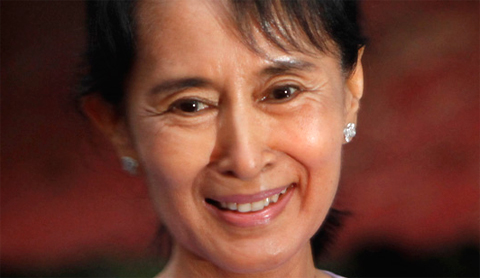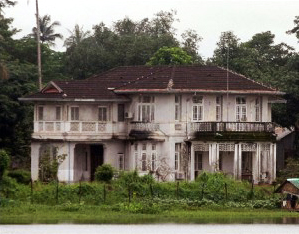An audience with Aung San Suu Kyi
The truth of her house arrest and hopes for Burma's future
Ed: Aung San Suu Kyi gave this account shortly after being freed from detention on November 13th 2010. The Anthill publishes it on the one-year anniversary of that release, as unparalleled reforms in Burma allow her to run in elections.

I think my release has itself created a tremendous release of energy and opportunity. I want people to grab that and try to push the limits. But I can’t do it on my own. There are so many young people who support us, full of energy and vigour and vim. But they have to learn not to be afraid of politics. They need to have courage.
I’m not particularly concerned about my own safety. Not in the sense that I don’t care whether I’m safe or not – of course I want to be safe – but I don’t spend time and energy thinking about it. In Rangoon in broad daylight, if there are many people around, I don’t think they would get away with it. I have a few young bodyguards. They are my security, you might say. Some of them are NLD [National League for Democracy] youth, and some of them are just friends. But I don’t know how strong they are. Some of them look quite small to me.
Words do mean something. I believe in the power of words and I have appreciated [world leaders'] support greatly. And if we want them to do more, we will have to tell them clearly what we would like them to do. I’ve always said it’s best to coordinate efforts. I spoke to David Cameron on the phone the other day. He was very supportive, and he has a very nice voice. He has come out with very strong and helpful statements. I hope that we will be able to work closely and effectively with him. Of course, we will try to get our Asian neighbours to be more supportive.
It is too early to ask for sanctions [on Burma] to be lifted. We must review the situation, obviously. Some of the people who say that sanctions hurt the people – do they really believe that, or is it just an excuse for the terrible state of the economy? We’ve got to go into this before we decide what our stance on sanctions should be.
The first time I was placed under house arrest [from 1989 to 1995], I was alone in the house and the security people were camped in my garden. Apart from the times when my family was allowed to visit me, I hardly saw anybody from the outside. I only saw the people who were responsible for my security. A young girl came in every day, but just to look after the house. It was altogether more restrictive. I didn’t know then that the security officers were not actually required to come into my garden.
This time [2003 to 2010] I had two companions. I had regular visits from my doctor during the last two years, and of course I saw quite a lot of my lawyers during the court case. Compared to the first stint, it was better. They threw me into the deep end, and after that I could swim beautifully. It embarrasses me to talk about personal cost when I see what other political prisoners have to put up with. Compared to that, whatever I have had to undergo is nothing. My personal cost is very little compared to theirs.
In detention it is all very disciplined. I always wake up at about 4.30am, and from 5.30 to about 8 I listen to the Burmese language radio broadcasts. Then I have a bath, I say my prayers and I continue listening to the radio while I have breakfast. After that, it’s not always the same – it depends on the day. I meditate, I read a lot, there are things I have to do around the house. I had the piano tuned quite recently so I started tinkling a bit, which felt very strange after seven or so years.
I would listen to the radio for about six hours a day. It’s a big chunk of the day, but if I missed anything no one would fill me in. I couldn’t afford to miss anything. It sort of felt like work – some of the news was not the happiest, but I felt it was my duty to listen and keep up with what was going on outside.
•

The house that was her prison for almost two decades
•
Aung San Suu Kyi talked to Phoebe Kennedy, a freelance journalist in Rangoon

















